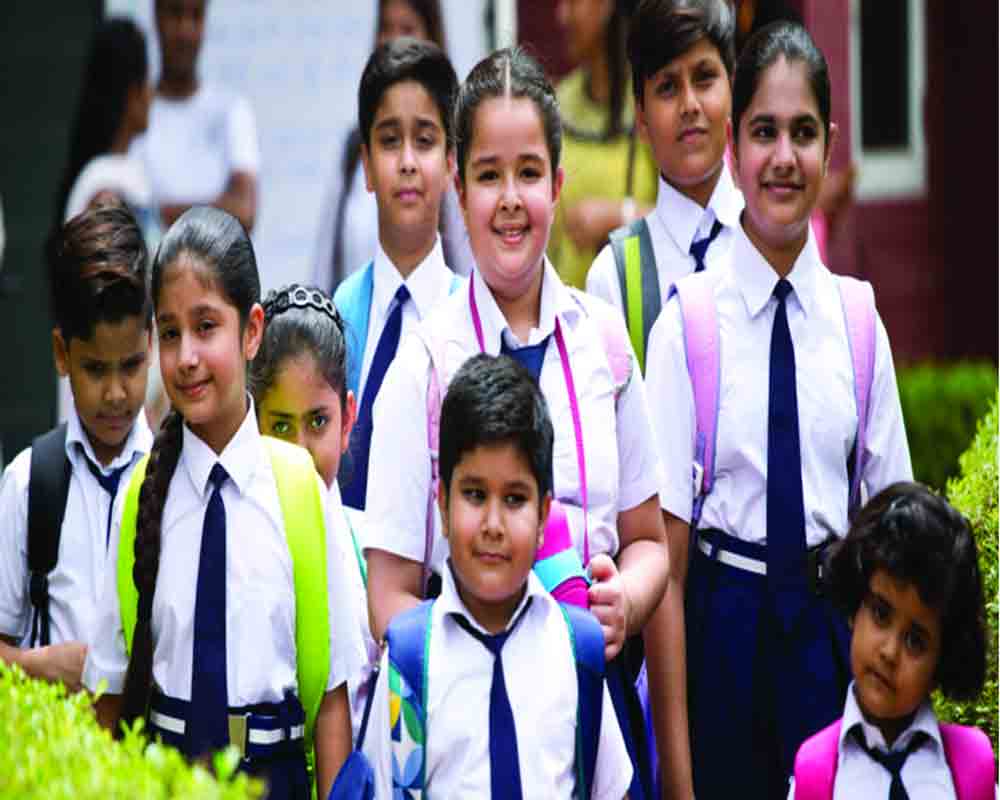COVID-19 hastened the spread of digital education but the biggest challenge is to ensure learning in schools, and transform each one of these into a learning school
Global efforts to universalise basic education have achieved a milestone in terms of attitudinal transformation: Practically every community, or people, is not only willing but also keen to send its wards to school. It severely contrasts with the erstwhile tradition amongst most people in most developing countries, India included, which were averse to schooling, particularly sending girls to school. The global literacy percentage for all males and females is 90 and 82.7. It took more than 60 years to reach the current situation when, on any day, over one billion children should be attending schools. In this encouraging scenario, however, there are several challenges. According to an estimate, 11 per cent of primary schoolchildren and 20 per cent of lower-secondary children are not in schools. Further, there are more non-learners in schools than outside schools. Access and participation deserve continuous attention and streamlining but the biggest challenge is to ensure learning in schools, and transform each one into a learning school. The insistence on learning, and not mere schooling, is no more the concern of academics and educationists alone. The NEP-2020 is conscious of this new responsibility. To imbibe learning, the learner requires a conducive environment. Clean premises, mid-day meals, appropriate equipment, drinking water and sanitation arrangement are a must, but most important is the “Teacherâ€, and her/his own holistic learning and the values that were internalised at the teacher preparation institute.
The transition from mere teaching to learning is a major advancement towards the knowledge society. It finds place in most of the dynamic education policies, and NEP-2020 is explicit about it. It will have significant implications towards evaluation and examination reforms. The pandemic created unforeseen challenges before global education policies and systems. The most daunting among these is the prevailing uncertainty on how long it would take to arrive at the normal mode of face-to-face schooling. India’s education policy makers were busy finalising the new policy (after 34 years) when the pandemic struck. It was evident that education systems have to remain ever alert to such unforeseen exigencies; NEP-2020 has several indications on alternative strategies, including embedded learning, which came as a great support when children were confined home. Interestingly, what could have taken a couple of more years in utilising digital on large technologies in education was achieved in months, the remotest places not excluded. India salutes its teachers, who promptly familiarised themselves with new gadgets and techniques.
The challenge appears in its enormity in most of the Government schools that function with deficiencies and inadequacies. They are to be converted into learning schools. And they require an active, alert and conscious work culture transformation. The teachers and teacher training institutions shall have to walk the extra mile, make such changes in the totality of the institutional functioning in the light of the most prominent principle of education taught to us by Sri Aurobindo: “Nothing can be taught!†Harmonise it with the eternal truth expressed by Swami Vivekananda: “Education is manifestation of perfection already in man!†The world of education is making attempts to understand this philosophy. The Delores Commission Report of 1996, which made attempts to envision the shape of global education in the 21st century, titled its report ‘Learning: The Treasure within’. The Indian philosophical — yet fully pragmatic — basis is totally tilted towards learning, and it was beautifully articulated by Gurudev Rabindranath Tagore: “Every child is blessed with two boons at the time of birth; the power of ideas and the power of imagination.†No child is discriminated on this count. It is the transplanted system of education that has enslaved us in a system that makes every endeavour to impede the nourishment of ideas and imagination. One must hasten to add that even earlier, the importance of “learning†was pointed out in learned academic discourse, but in practice the system’s rigidity prevailed and not much came out of it. Now that NEP-2020 has proposed organisational and structural changes of far-reaching consequences, the shift towards learning and an entirely new approach in the assessment of learning attainments becomes a fait accompli.
The learning canvas shall have to be explored very cautiously. Learning to learn, and lifelong learning, would become the life-sustaining assets of every citizen to meet the concerns being faced nationally, and globally. Immediately after adopting the global agenda for the sustainable development goals including SDG-4 (“Ensure inclusive and equitable quality education and promote lifelong learning opportunities for all†by 2030) in 2015, India turned its attention to prepare a response education policy. The NEP-2020 was put to the toughest of tests. The pandemic also showed how a school becomes a learning school. Innumerable schools and teachers have responded through morally sound, ethically inspiring and culturally conducive initiatives. One must also add that the inspiration and motivation that emerged from NEP-2020 has played a great part as it has prepared teachers for transformation. It has revealed to them that every school can become a learning centre, adored and supported by one and all.
(The author works in education and social cohesion. The views expressed are personal.)


























